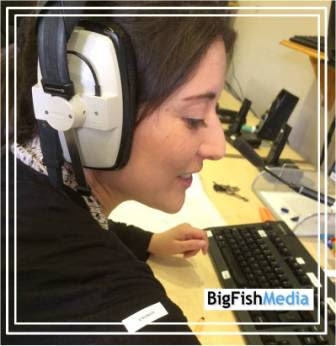Our voiceovers have narrated everything from financial forecasts, animal antics and even the Changing of the Guard as part of a London Tour. We love getting such a variety of copy.
This month alone our voiceover artists have been leaders of
industry, Mindfulness Managers, Automobile agents and so much more.
As we sort through the pile of scripts we have information that not only would stand you well in a pub quiz (Do you know the century when the concept of Emotions was documented?) but information that expands your mind.
As we sort through the pile of scripts we have information that not only would stand you well in a pub quiz (Do you know the century when the concept of Emotions was documented?) but information that expands your mind.
Our voiceover actors acknowledge the importance of the
words they read out loud, knowing that it will be for an audience that has to
connect directly to the information in front of them.
From blockchain arrangements and medical marvels, they each know that what they say must be understood by the listener, conveyed with the correct emotion. It ensures that the audience engages with the visual, text and product.
We have seen pretty much everything in our scripts and we have learnt a few things about the information in scripts. With this in mind we felt a rundown of the best 5 things we have learnt from the copy we have seen:
From blockchain arrangements and medical marvels, they each know that what they say must be understood by the listener, conveyed with the correct emotion. It ensures that the audience engages with the visual, text and product.
We have seen pretty much everything in our scripts and we have learnt a few things about the information in scripts. With this in mind we felt a rundown of the best 5 things we have learnt from the copy we have seen:
- Omnipresent Voice Actors: We have voiced pretty much
every single industry, product, brand and service. Our voices can be heard
globally
- Expect the unexpected: Either a script will be changed
at the last minute or words may be asked to be said in a different way
than you are used to, simply to cover all option bases.
- Pivot Points: All copy will have pivot point from a
serious message to fun and/or back again. Content usually turns on a penny
and so the voice must be able to see this and voice accordingly.
- Check copy: Always check that the script is the correct
one before a voiceover session. Our voices can sight read but it is always
best to give the voice a chance to read the lines, especially if they are
verbose and using technical language.
- Information: Copy and content are there to provide
information, to tell a story, to get a message across. As the audience is
made up of multi learning methods (visual, audio, kinaesthetic etc) then
give them as much help as you can. Include both text, visuals and audio to
ensure you touch and engage them on the level that works for them.
We
find it incredible that content in the right context can make words jump off
the page and engage consumers. To choose your next voiceover for your audio project
then please get in touch.









